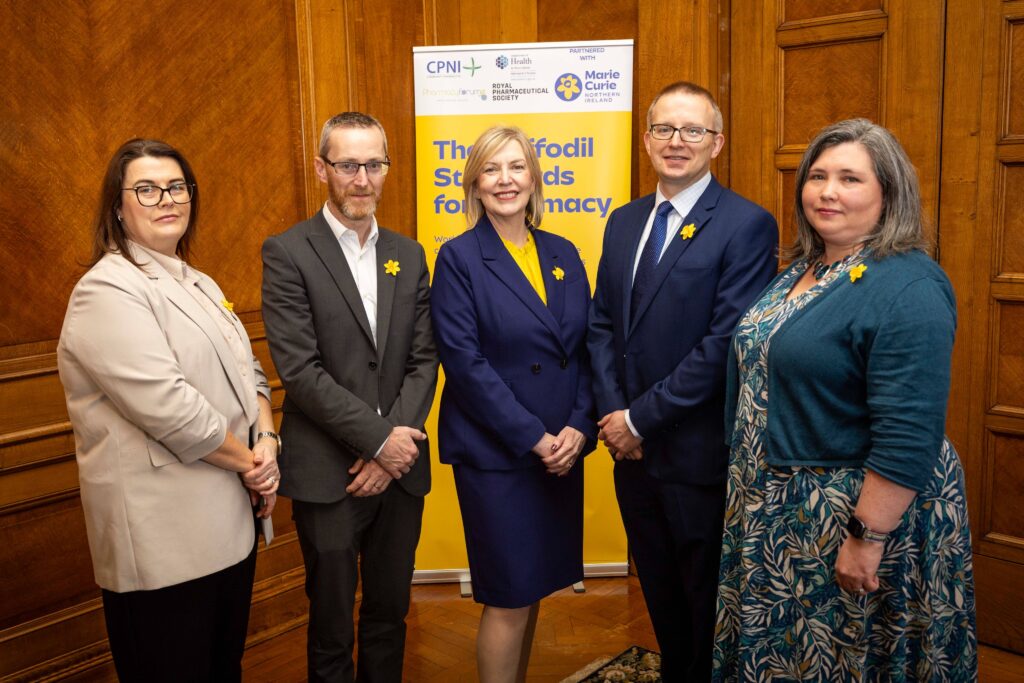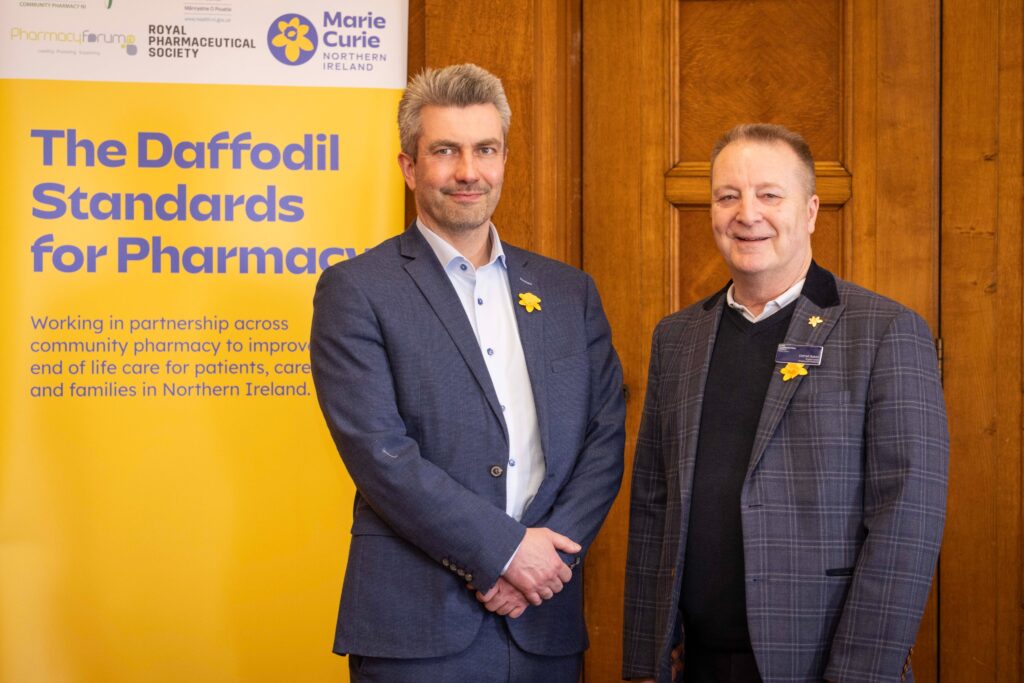A new campaign has been launched in community pharmacies across Northern Ireland to raise awareness of the signs and symptoms of cancer and help with early diagnosis.
The ‘Be Cancer Aware’ campaign is running in community pharmacies this April and May as part of the Living Well service. It highlights the role of pharmacy teams in providing advice and support, and encourages people who may be experiencing possible cancer symptoms to talk to their GP. It also aims to promote healthy changes to help reduce the risk of developing cancer in the future.
Dr Anna Cullen, Public Health Registrar at the Public Health Agency (PHA), said: “Cancer is a common condition. It is estimated that around half of us will develop some form of cancer in our lifetime.
“Everyone knows what feels ‘normal’ for them and it’s important to be aware of any changes in your body, but there are some common changes and symptoms to look out for and act on. Being aware of the general signs and symptoms of cancer can help in early detection and increase your chance of survival.”
Some signs and symptoms to look out for include:
· coughing up blood;
· blood in urine;
· blood mixed through bowel motion (stools);
· a change in bowel habit that lasts for three weeks or more;
· unexplained, significant weight loss (5kg/10lbs over a couple of months);
· a lump anywhere on your body;
· changes on your skin or to an existing mole (such as itching, bleeding or a change in shape or colour);
· a sore that doesn’t heal;
· symptoms that refuse to clear up, for example a cough or hoarseness that lasts for more than three weeks.
Dr Cullen concluded: “If you notice any of these symptoms and you feel something isn’t right, do not hesitate to contact your GP. In many cases, these symptoms will turn out to be a sign of something far less serious, but it is always best to get them checked out. If it is cancer, an early diagnosis means treatment is more likely to be successful.
“You can also ask your pharmacist for advice and further support. They can help you identify ways you can reduce your risk of developing cancer.”
Clare Conroy, Community Pharmacist from Meigh Pharmacy, Co Down added: “The earlier you find cancer, the easier it is to treat. Community pharmacy is the ideal setting to help encourage people to look after their health, and pharmacy teams play a critical role in supporting early cancer diagnosis.
“As well as advising on how to spot cancer early, pharmacy teams can help support people to make healthy changes that could reduce the risk of cancer. The first step is simple, just ask your pharmacist for advice.”
As part of the Living Well campaign, community pharmacies across Northern Ireland are providing the free information booklet, ‘Be Cancer Aware – Spotting symptoms and reducing your risk’, to members of the public. A copy of this leaflet can be found at www.pha.site/be-cancer-aware-leaflet
For further information on the signs and symptoms of cancer see www.BeCancerAwareNI.info





